The city - sliced, diced and served with a dash of sauce
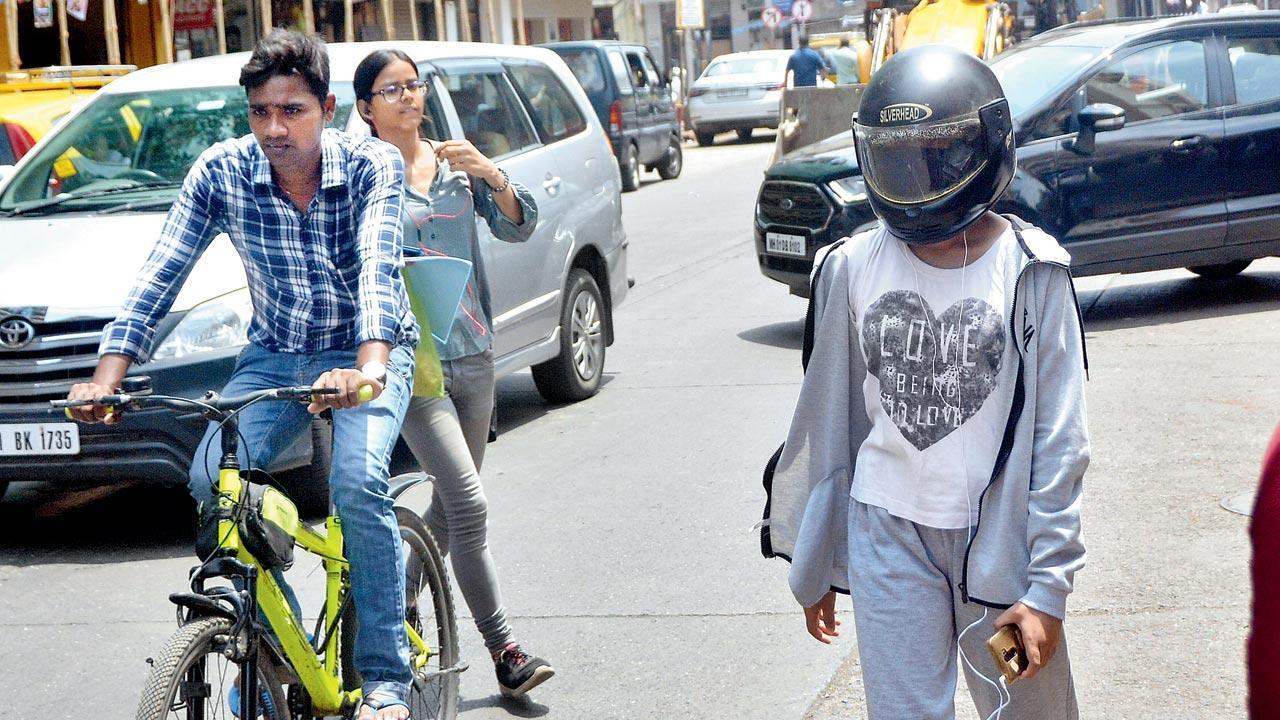
Pic/Sayyed Sameer Abedi
Geared up for battle
ADVERTISEMENT
A young pedestrian takes the pillion-wears-helmet rule seriously while walking on the streets of Colaba.
The return of the black horse
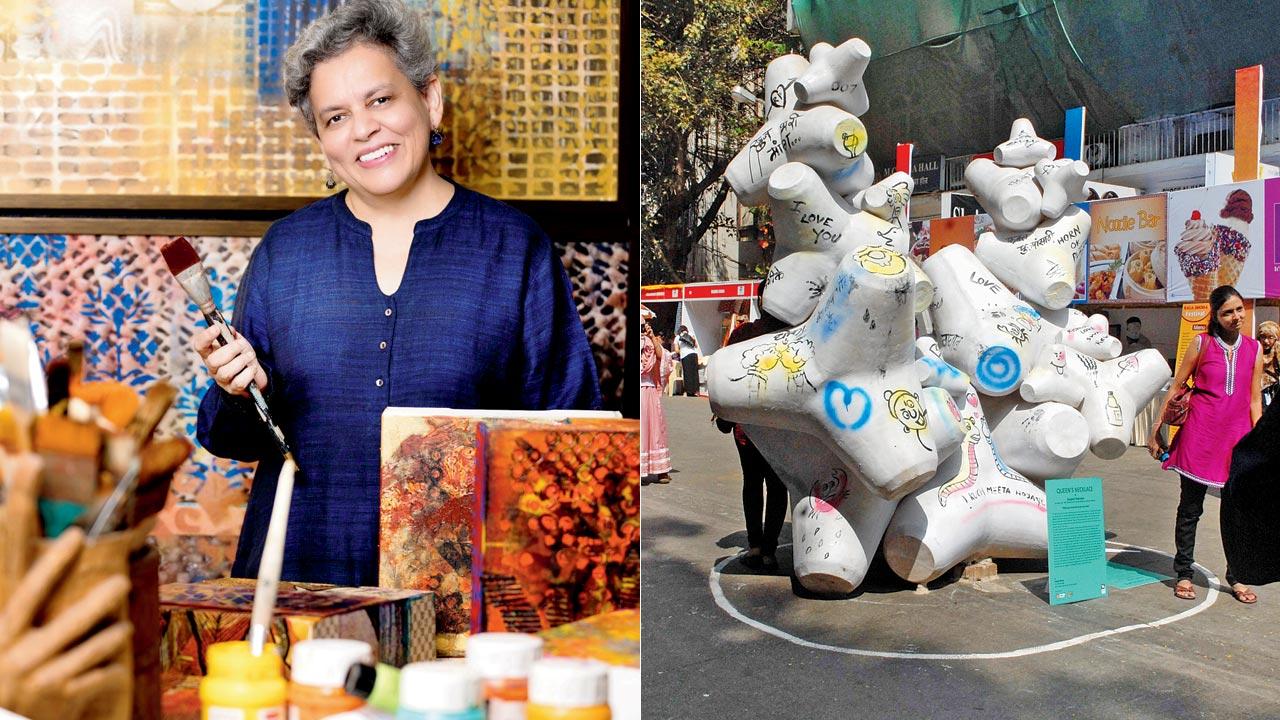 Brinda Miller. Pic Courtesy/Vikram Bawa; (right) Installation at a previous edition of the festival
Brinda Miller. Pic Courtesy/Vikram Bawa; (right) Installation at a previous edition of the festival
We were pleasantly surprised with the big announcement of the city’s annual art celebration, Kala Ghoda Festival, returning next year. The festival will take place in the week from February 4 to February 12, 2023. The pandemic had put the brakes on this art celebration over the last two years and while the festival did have a short stint virtually in 2021, it was not the same. Artist Brinda Miller, honorary chairperson of the Kala Ghoda festival association, agreed. She shared with this diarist that the decision to hold the festival next year was unanimous. The bigger struggle was the decision to postpone it in 2022. “There have been a lot of enquiries by people who are waiting for it to happen. It is an event on everybody’s calendar,” she added. The festival remains a common ground for Mumbaikars to experience art, music and literature. Miller said, “It is a free festival and has so much to offer, and no one is worried about buying tickets.” So is the theme for the festival set, we asked? Too early, said Miller. “We have just announced the festival. And in the next week, we will have the theme marked down,” she concluded.
Turning to the youth
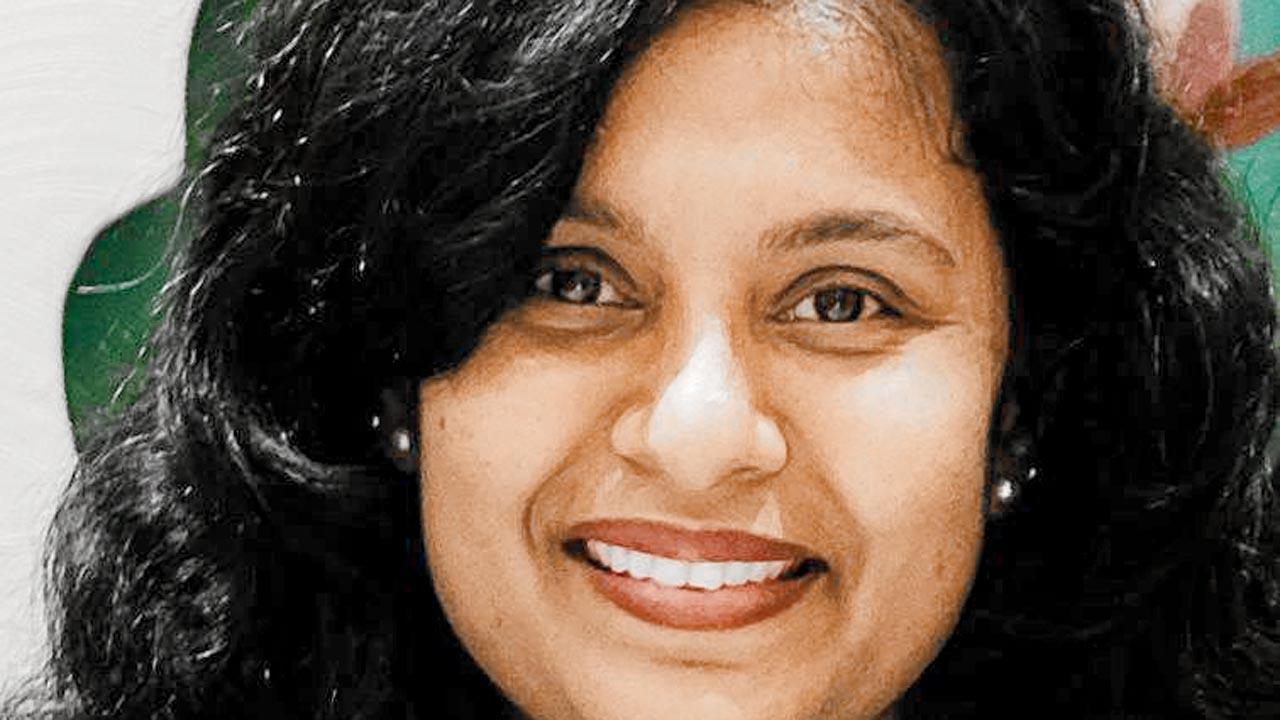
The Orange City Literature Festival has now opened its doors to children across many cities. Its first children’s literature festival was inaugurated on June 10 by former Mumbai University vice chancellor Dr Rajan Welukar. Mrunal Naik, project director, told us the decision for a children’s literature festival was taken to give the kids something to think about before the schools reopen; “This opportunity needs to be given to them so that they understand what literature is.” Kids can access sessions from their homes, she added. With talks by Sutapa Basu, Shobha Tharoor Srinivasan and Lubaina Bandukwala available on YouTube, young minds can soak in a whole new spectrum of stories.
Kashish goes online
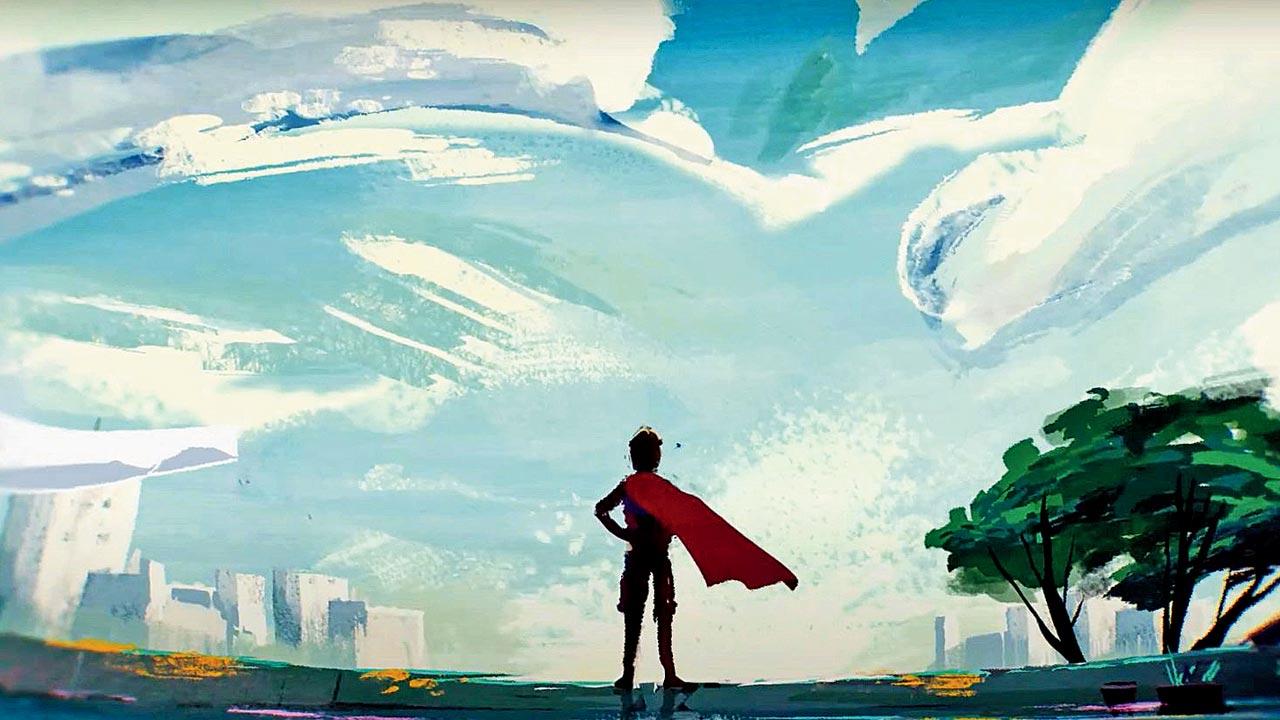
After the physical festival ended on June 5, Kashish Mumbai has plans to extend it further into Pride month. The festival continues online, and will end this weekend on June 12. “In the pandemic, most festivals went online and we have gained new audiences who could not visit the film festival earlier,” founder Sridhar Rangayan informed this diarist. “The online festival will also include some films which we were unable to accommodate in the physical film festival,” he added. Quite the boost for cinephiles who already have access to 184 films from across 53 countries shown at the festival. This includes the award winner for Documentary Shorts II, La Queencianera by Pedro Peira. Praising the film, Rangayan said, “It won the Best Documentary Feature award, and is a brave attempt by the filmmaker to trace the life of a trans person, structured beautifully with animation and a heartwarming personal story.”
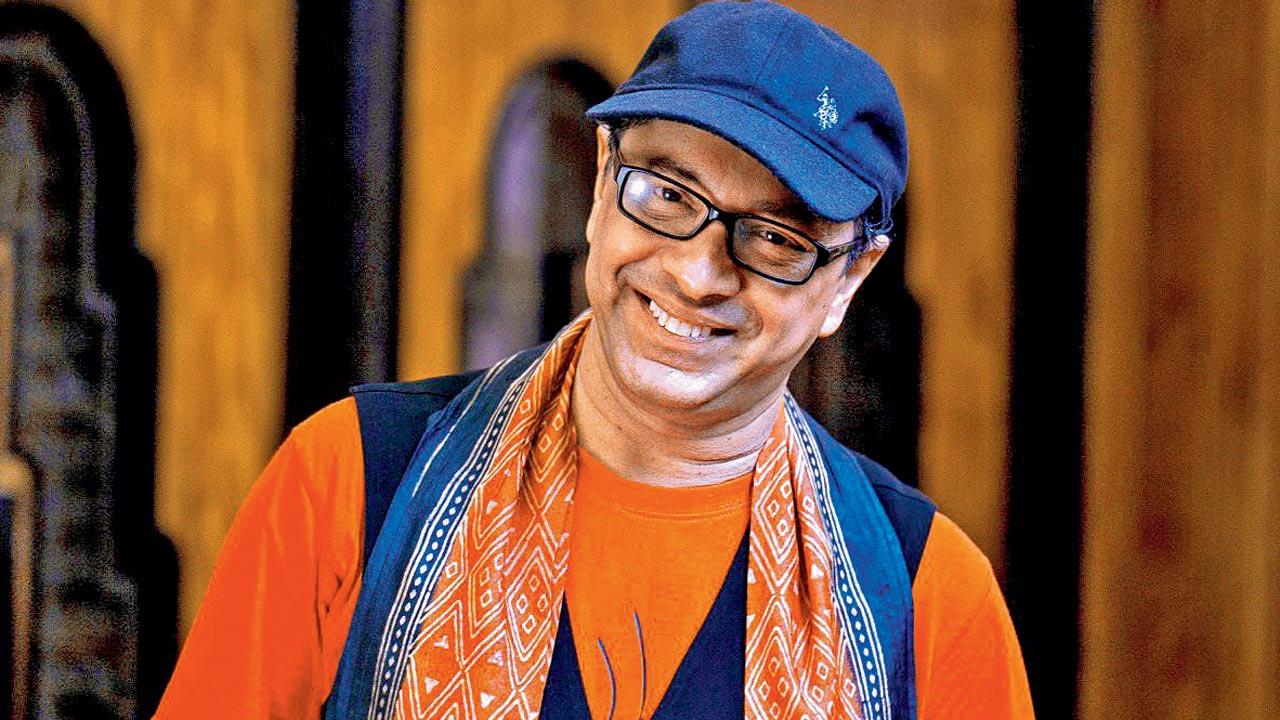
Once in a century
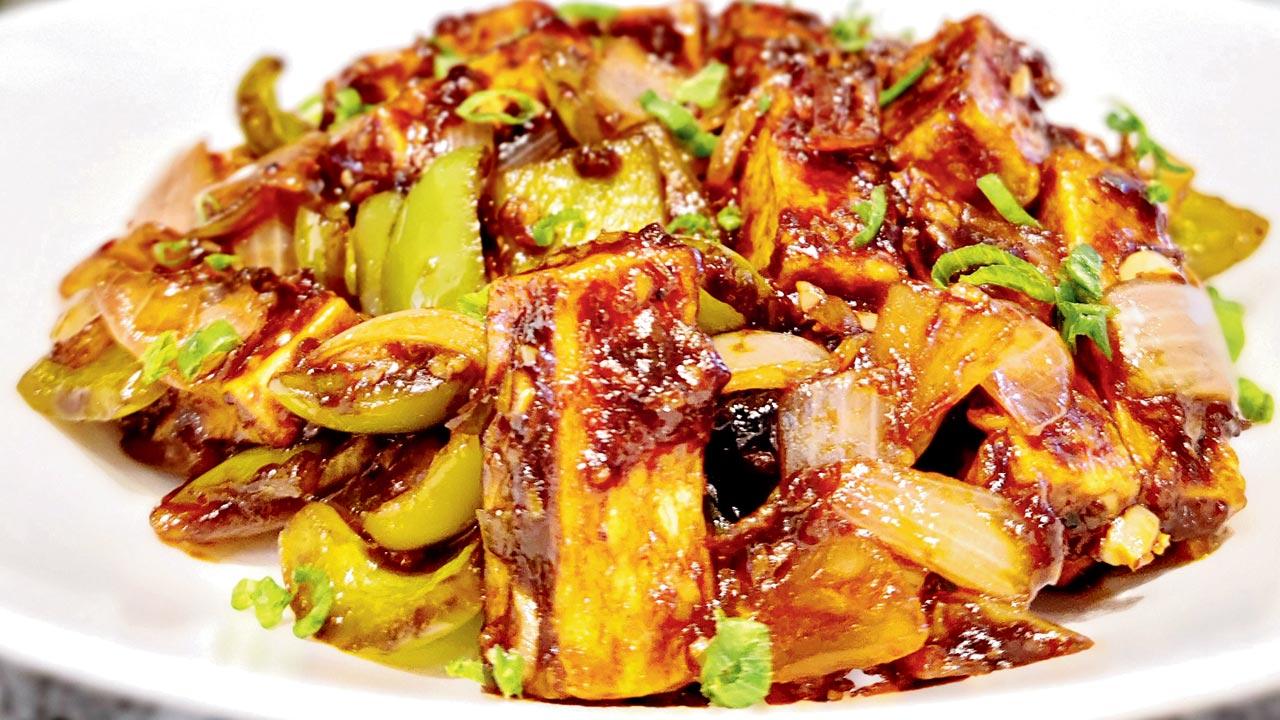
Cafe Mondegar has been a part of the city’s history for as long as this diarist can remember. After a century of consistency and a menu loyalists are attached to, it seems that the time has come for Colaba haunt Mondy’s to try something new age. The cafe will introduce EVO’s plant-based egg recipes as a protein option for patrons with schezwan, hot chilli or black bean sauce. “Eggs are the ultimate comfort food and what is comfortable to eat should also be comfortable to grow,” said Shraddha Bhansali, its co-founder. The choice of serving at Mondegar was simple, she admitted. “It is an iconic Mumbai destination which has a casual and cozy vibe.”
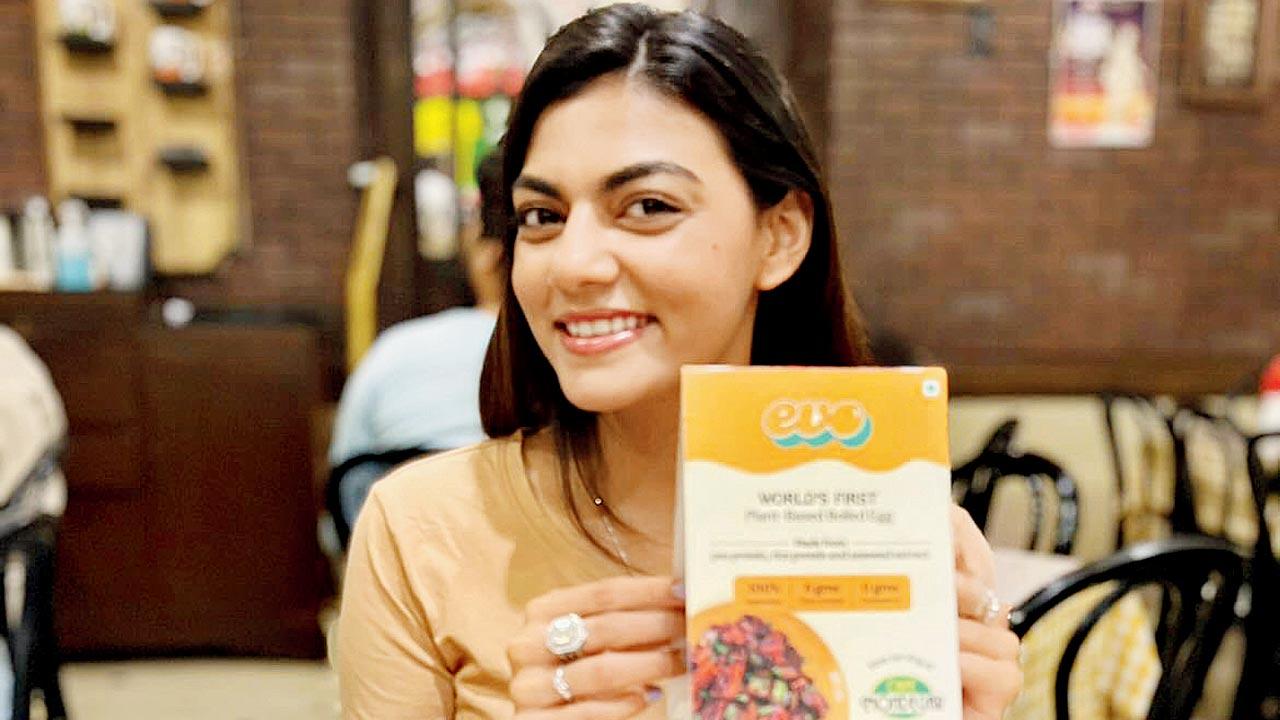
Finding a new cooking language
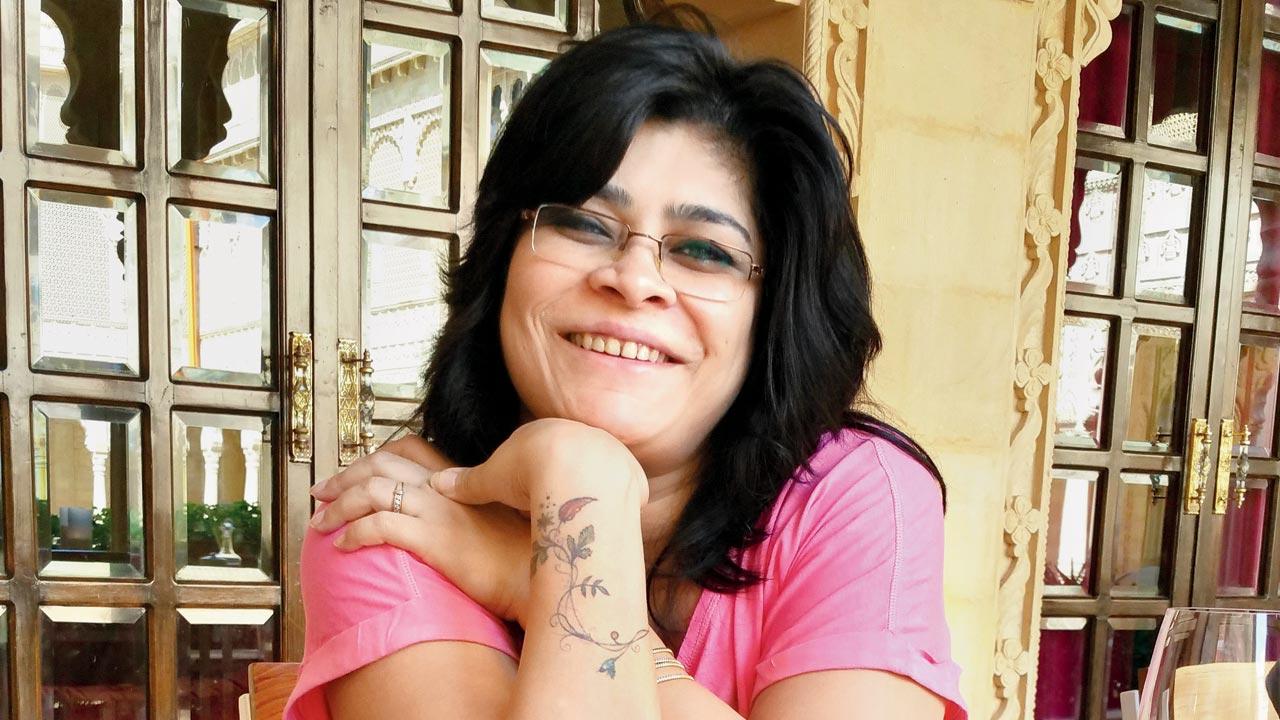
Rushina Munshaw Ghildiyal has been busy. The home chef and author is working on the final manuscript of her book on the cuisine of Uttarakhand. “It has been a 20-year-long journey,” she told this diarist. She said, “During the pandemic, I was in Uttarakhand and it gave me an insight into the food I did not have before.” What sets it apart, we asked? “For a region that was geographically cut off, the cuisine is in sync with the modern mindful eating practices,” she elaborated. The spices jhakiya, jambu and bhang add to the flavour profile, she said. While the book is being self-published, the author is also preparing for an online workshop with Valley Culture India in July.
 Subscribe today by clicking the link and stay updated with the latest news!" Click here!
Subscribe today by clicking the link and stay updated with the latest news!" Click here!







